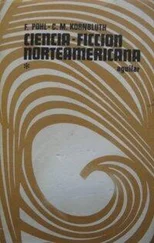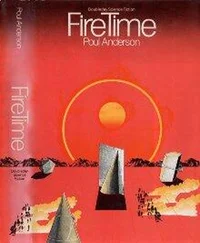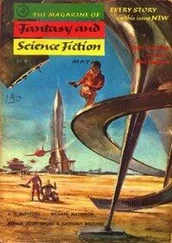Poul Anderson - Guardians of Time
Здесь есть возможность читать онлайн «Poul Anderson - Guardians of Time» весь текст электронной книги совершенно бесплатно (целиком полную версию без сокращений). В некоторых случаях можно слушать аудио, скачать через торрент в формате fb2 и присутствует краткое содержание. Год выпуска: 1962, Издательство: Ballantine, Жанр: Альтернативная история, на английском языке. Описание произведения, (предисловие) а так же отзывы посетителей доступны на портале библиотеки ЛибКат.
- Название:Guardians of Time
- Автор:
- Издательство:Ballantine
- Жанр:
- Год:1962
- ISBN:нет данных
- Рейтинг книги:3 / 5. Голосов: 1
-
Избранное:Добавить в избранное
- Отзывы:
-
Ваша оценка:
- 60
- 1
- 2
- 3
- 4
- 5
Guardians of Time: краткое содержание, описание и аннотация
Предлагаем к чтению аннотацию, описание, краткое содержание или предисловие (зависит от того, что написал сам автор книги «Guardians of Time»). Если вы не нашли необходимую информацию о книге — напишите в комментариях, мы постараемся отыскать её.
“Delenda est” Dec 1955;
“Brave To Be A King” Aug 1959;
“The Only Game in Town” Jan 1960;
“Gibraltar Falls” Oct 1975.
Guardians of Time
Guardians of Time — читать онлайн бесплатно полную книгу (весь текст) целиком
Ниже представлен текст книги, разбитый по страницам. Система сохранения места последней прочитанной страницы, позволяет с удобством читать онлайн бесплатно книгу «Guardians of Time», без необходимости каждый раз заново искать на чём Вы остановились. Поставьте закладку, и сможете в любой момент перейти на страницу, на которой закончили чтение.
Интервал:
Закладка:
Guardians of Time
by Poul Anderson
Time Patrol
To Kenny Cray
—who’ll tell me that I did wrong
—and to Gloria, who knows better
1
MEN WANTED 21-40, pref. single, mil. or tech. exp., good physique, for high-pay work with foreign travel. Engineering Studies Co., 305 E.45, 9-12 2-6.
“The work is, you understand, somewhat unusual,” said Mr. Gordon. “And confidential. I trust you can keep a secret?”
“Normally,” said Manse Everard. “Depends on what the secret is, of course.”
Mr. Gordon smiled. It was a curious smile, a closed curve of his lips which was not quite like any Everard had seen before. He spoke easy colloquial General American, and wore an undistinguished business suit, but there was a foreignness over him which was more than dark complexion beardless cheeks, and the incongruity of Mongolian eyes above a thin Caucasian nose. It was hard to place.
“We’re not spies, if that’s what you’re thinking,” he said.
Everard grinned. “Sorry. Please don’t think I’ve gone as hysterical as the rest of the country. I’ve never had access to confidential data anyway. But your ad mentioned overseas operations, and the way things are—I’d like to keep my passport, you understand.”
He was a big man, with blocky shoulders and a slightly battered face under crew-cut brown hair. His papers lay before him: Army discharge, the record of work in several places as a mechanical engineer. Mr. Gordon had seemed barely to glance at them.
The office was ordinary, a desk and a couple of chairs, a filing cabinet, and a door leading off in the rear. A window opened on the banging traffic of New York, six stories down.
“Independent spirit,” said the man behind the desk. “I like that. So many of them come cringing in, as if they’d be grateful for a kick. Of course, with your background you aren’t desperate yet. You can still get work, even in… ah, I believe the current term is a rolling readjustment.”
“I was interested,” said Everard. “I’ve worked abroad, as you can see, and would like to travel again. But frankly, I still don’t have the faintest idea what your outfit does.”
“We do a good many things,” said Mr. Gordon. “Let me see… you’ve been in combat. France and Germany.” Everard blinked; his papers had included a record of medals, but he’d have sworn the man hadn’t had time to read them. “Um… would you mind grasping those knobs on the arms of your chair? Thank you. Now, how do you react to physical danger?”
Everard bristled. “Look here—”
Mr. Gordon’s eyes flicked to an instrument on his desk: it was merely a box with an indicator needle and a couple of dials. “Never mind. What are your views on internationalism?”
“Say, now—”
“Communism? Fascism? Women? Your personal ambitions?… That’s all. You don’t have to answer.”
“What the devil is this, anyway?” snapped Everard.
“A bit of psychological testing. Forget it. I’ve no interest in your opinions except as they reflect basic emotional orientation.” Mr. Gordon leaned back, making a bridge of his fingers. “Very promising so far. Now, here’s the setup. We’re doing work which is, as I’ve told you, highly confidential. We… ah… we’re planning to spring a surprise on our competitors.” He chuckled. “Go ahead and report me to the FBI if you wish. We’ve already been investigated and have a clean bill of health. You’ll find that we really do carry on world-wide financial and engineering operations. But there’s another aspect of the job, and that’s the one we want men for. I’ll pay you one hundred dollars to go in the back room and take a set of tests. It’ll last about three hours. If you don’t pass, that’s the end of it. If you do, we’ll sign you on, tell you the facts, and start you training. Are you game?”
Everard hesitated. He had a feeling of being rushed. There was more to this enterprise than an office and one bland stranger. Still…
Decision. “I’ll sign on after you’ve told me what it’s all about.”
“As you wish,” shrugged Mr. Gordon. “Suit yourself. The tests will say whether you’re going to or not, you know. We use some very advanced techniques.”
That, at least, was entirely true. Everard knew a little something about modern psychology: encephalographs, association tests, the Minnesota profile. He did not recognize any of the hooded machines that hummed and blinked around him. The questions which the assistant—a white-skinned, completely hairless man of indeterminate age, with a heavy accent and no facial expression—fired at him seemed irrelevant to anything. And what was the metal cap he was supposed to wear on his head? Into what did the wires from it lead?
He stole glances at the meter faces, but the letters and numerals were like nothing he had seen before. Not English, French, Russian, Greek, Chinese, anything belonging to 1954 A.D. Perhaps he was already beginning to realize the truth, even then.
A curious self-knowledge grew in him as the tests proceeded. Manson Emmert Everard, age 30, onetime lieutenant in the U.S. Army Engineers; design and production experience in America, Sweden, Arabia; still a bachelor, though with increasingly wistful thoughts about his married friends; no current girl, no close ties of any kind; a bit of a bibliophile; a dogged poker player; fondness for sailboats and horses and rifles; a camper and fisherman on his vacations. He had known it all, of course, but only as isolated shards of fact. It was peculiar, this sudden sensing of himself as an integrated organism, this realization that each characteristic was a single inevitable facet of an over-all pattern.
He came out exhausted and wringing wet. Mr. Gordon offered him a cigarette and swept eyes rapidly over a series of coded sheets which the assistant gave him. Now and then he muttered a phrase: “…Zeth-20 cortical… undifferentiated evaluation here… psychic reaction to antitoxin… weakness in central coordination…” He had slipped into an accent, a lilt and a treatment of vowels which were like nothing Everard had heard in a long experience of the ways in which the English language can be mangled.
It was half an hour before he looked up again. Everard was getting restless, a faint anger stirring at this cavalier treatment, but interest kept him sitting quietly. Mr. Gordon flashed improbably white teeth in a broad, satisfied grin. “Ah. At last. Do you know, I’ve had to reject twenty-four candidates already? But you’ll do. You’ll definitely do.”
“Do for what?” Everard leaned forward, conscious of his pulse picking up.
“The Patrol. You’re going to be a kind of policeman.”
“Yeh? Where?”
“Everywhere. And everywhen. Brace yourself, this is going to be a shock.
“You see, our company, while legitimate enough, is only a front and a source of funds. Our real business is patrolling time.”
2
The Academy was in the American West. It was also in the Oligocene period, a warm age of forests and grasslands when man’s ratty ancestors scuttled away from the tread of giant mammals. It had been built a thousand years ago; it would be maintained for half a million—long enough to graduate as many as the Time Patrol would require—and then be carefully demolished so that no trace would remain. Later the glaciers would come, and there would be men, and in the year 19352 A.D. (the 7841st year of the Morennian Triumph), these men would find a way to travel through time and return to the Oligocene to establish the Academy.
It was a complex of long, low buildings, smooth curves and shifting colors, spreading over a greensward between enormous ancient trees. Beyond it, hills and woods rolled off to a great brown river, and at night you could sometimes hear the bellowing of titanotheres or the distant squall of a sabertooth.
Читать дальшеИнтервал:
Закладка:
Похожие книги на «Guardians of Time»
Представляем Вашему вниманию похожие книги на «Guardians of Time» списком для выбора. Мы отобрали схожую по названию и смыслу литературу в надежде предоставить читателям больше вариантов отыскать новые, интересные, ещё непрочитанные произведения.
Обсуждение, отзывы о книге «Guardians of Time» и просто собственные мнения читателей. Оставьте ваши комментарии, напишите, что Вы думаете о произведении, его смысле или главных героях. Укажите что конкретно понравилось, а что нет, и почему Вы так считаете.












